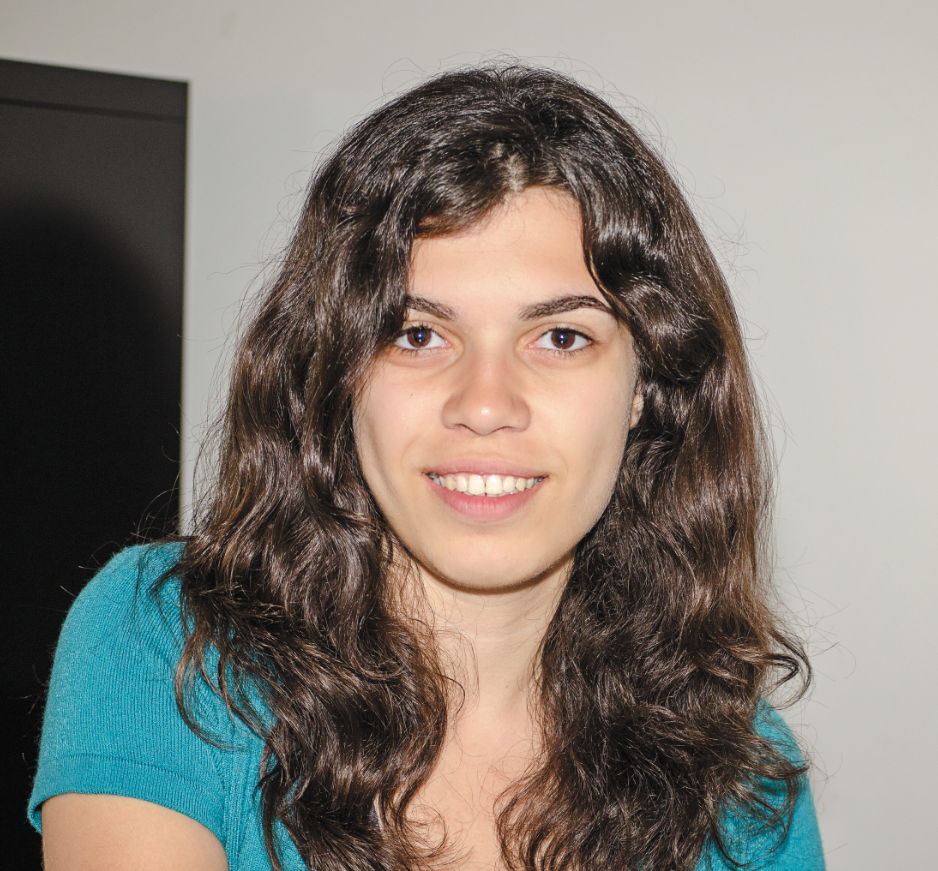Inaam Abuelsoud: From Egypt to East Peoria

ALISSA HASTINGS | THE HARBINGER
EAST PEORIA — In August, Egypt-native Ms. Inaam Abuelsoud began a two-semester stint of teaching Arabic here at Illinois Central College as she strives towards her lifetime goal of helping the uneducated back in her home country.
Brought to East Peoria by a coveted scholarship from the U.S.-based Fulbright Program, 23-year-old Abuelsoud was born and raised in Cairo, Egypt’s capital and largest city, where she focused on learning to teach English to Egyptians. It was this desire to teach the English language that ultimately lead to her being awarded the international scholarship.
Now, Abuelsoud is teaching Arabic here at ICC for this academic year; in fact, she’s the only person teaching Arabic at ICC.
“The program that I’m on is called Foreign Language Teacher Assistant,” Abuelsoud explained, “so basically I should be assisting the main teacher, but here there’s no main teacher for Arabic so I’m the main teacher.”
Abuelsoud explained that she had a variety of experiences, both at home and abroad, that led her to this point in her life. All this is spite of being confined to Cairo for most of her years due to the social environment of the region.
“My family’s not so familiar with traveling,” Abuelsoud explained, “and it’s not that common for a girl to travel alone back in Cairo or, I think, in any Arab country. It’s not that common for a girl to just start roaming around all by themselves.”
So, without leaving Cairo, Abuelsoud said she began her collegiate education in 2007 at Ain Shams University, where she majored in English.
In 2008 she received the opportunity to work with a local nonprofit called Better World Foundation to help do exactly what she had been wanting to, teach English to underprivileged Egyptians. For several years, she said that her role in the program was to do simple tasks like “take attendance and stuff like that.” Then things suddenly changed in 2010.
In 2010, tension began to build in Egypt between the citizens and authorities, and this led to the departure of many of Better World’s American teachers. Now, Abuelsoud herself was faced with teaching English to these students in need.
“I kept the program going as if nothing had happened,” said Abuelsoud, “and I actually took care of three classes at a time. So I was running three classes right next to each other at one time.”
Abuelsoud said the next 18 months was a very busy time for her. She continued to further her education at the university and paid for it herself by working both as a translator for internationals, and as a customer service representative for Vodafone, a telecommunications company. All while continuing her efforts to help the underprivileged.
Then in June 2012 while on a trip to India, she tried applying to the Fulbright Foreign Language Teaching Assistant Program, which would pay for her to come teach her native language, Arabic, in the U.S. and allow her to study English in its native environment.
“I didn’t actually have the feeling that I would be accepted by any chance because it’s so hard to get through,” admitted Abuelsoud.
However, after a long application process, she was informed of her selection in January 2013.
She has now been teaching here at ICC for more than a month and seems to be doing fine.
“I think its really rewarding,” said Abuelsoud. “I am really having a blast in my classes!”
Standing in front of her class, she asks students to recall Arabic words and then explains their social usage with first-hand knowledge, something that her students appreciate.
“So far it’s awesome,” said Arabic student David Thompson, 33, of West Peoria, “I didn’t figure that I’d get a professor that’s from Egypt and is a native-speaking professor, so that’s pretty cool to have that live connection to another culture.”
When Abuelsoud returns to Egypt next summer, she has a dream of applying her educational skills, with the help of a friend and fellow teacher, to the turbulent region of Sinai, she explains.
“We want to have some schooling system for girls there because the community that lives in this area… they’re Bedouins and the majority of their girls there are illiterate because they don’t go to school. So this is one way we can better their situation. I think I can better their situation.”

